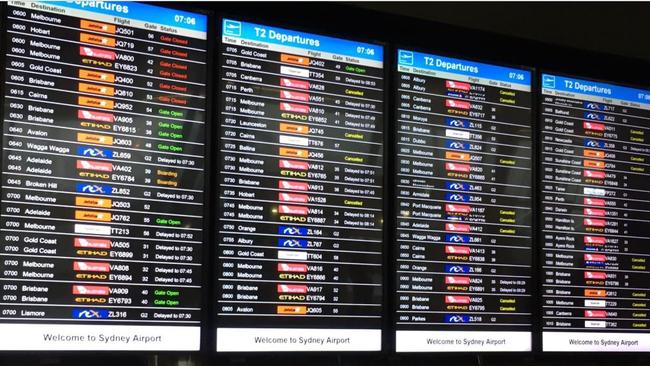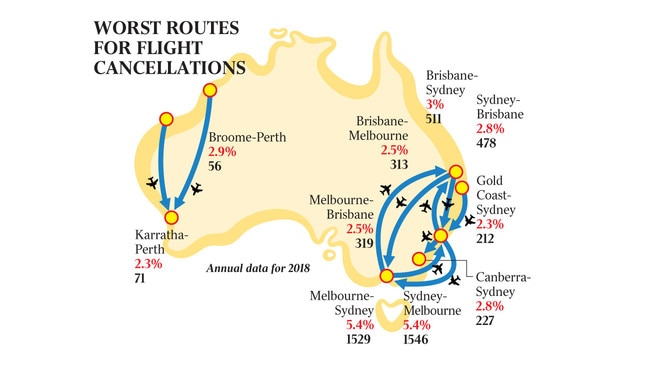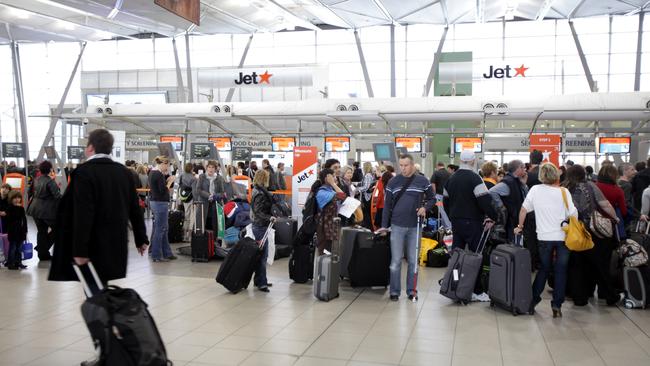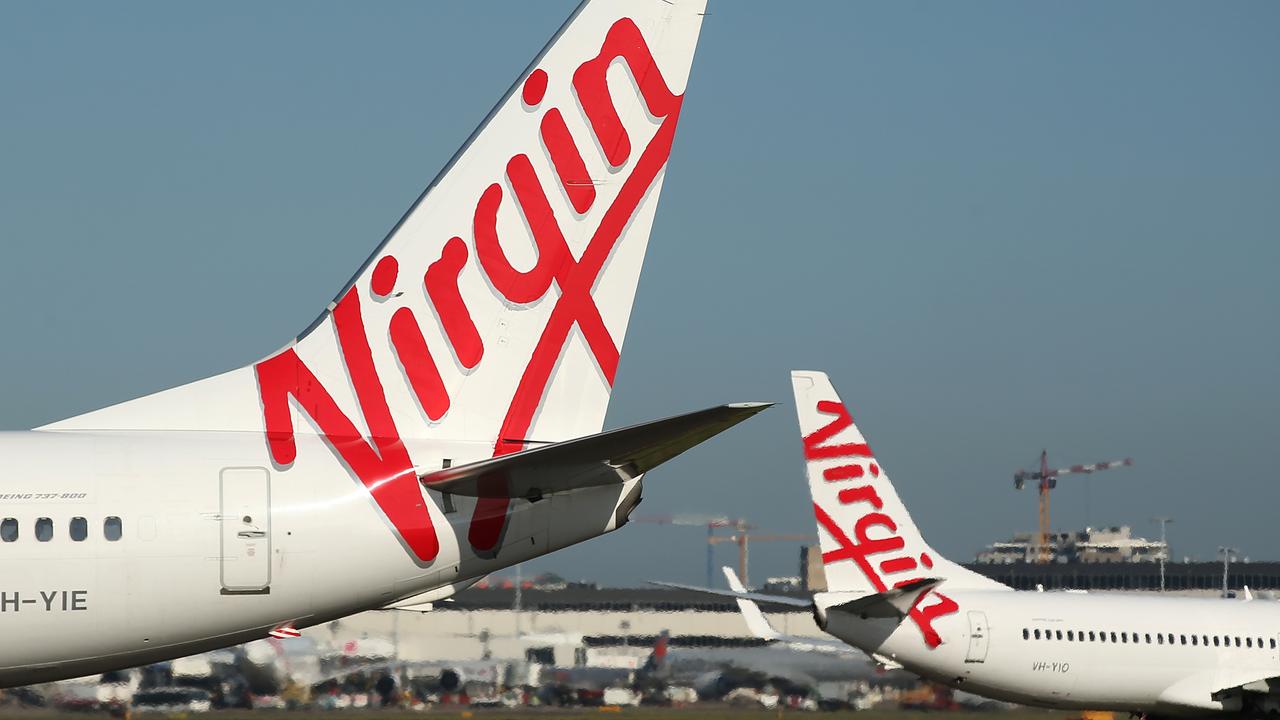Heavy weather for airlines as storms affect on-time performance
Delays and cancellations rose last year with new figures identifying the worst route and why more flights were late or never took off.

Flight cancellations and delays increased last year, with new federal government figures showing airlines turned in a below-average on-time performance in 2018.
Although Qantas and Virgin Australia shared line honours for the best on-time arrivals and departures results respectively, overall a higher proportion of flights were late and more than 10,000 services (1.8 per cent) were cancelled.
The cancellations were worst on Australia’s busiest route, Melbourne to Sydney, with one in 20 flights scrapped — or 5.4 per cent.
The figures were just as bad travelling from Sydney to Melbourne, with 1546 flights cancelled over the course of the year or 4.2 every day.
Bad weather and air-traffic control disruptions were blamed for the poor showing. Airlines have vowed to do better this year.
According to the Bureau of Infrastructure, Transport and Regional Economics, one in five flights (20.2 per cent) landed more than 15 minutes behind schedule, and 19.2 per cent took off late.
The long-term average for on-time arrivals is 82.5 per cent and 83.8 per cent for departures.
A Qantas spokesman said it was focused on getting passengers to their destinations on time and ensuring they could respond when factors outside of their control arose.

“Overall, we were happy with our on-time performance for 2018 but we recognise that it was affected by a number of external factors including weather events, air-traffic flow management delays and air-traffic control congestion,” he said.
“This was especially the case in November and June where we saw unusual weather and air-traffic flow management delays.”
A Virgin spokeswoman said the industry was impacted by severe weather in Sydney and Melbourne late last year, as well as increased traffic congestion in and out of Melbourne due to a new runway system.
During severe weather in Sydney, operations were reduced to a single runway. “We are always focused on providing a reliable travel experience for our guests, but such is the nature of aviation there are often factors outside our control that may impact our operations,” the spokeswoman said.
She said Virgin was proud to have achieved the best on-time performance of the major airlines for departures, and recording its lowest cancellation rate since 2015 of 1.7 per cent.
Budget partner Tigerair did not fare so well, with the worst on-time performance of any airline for arrivals and departures, and the highest cancellation rate of 3.5 per cent.




